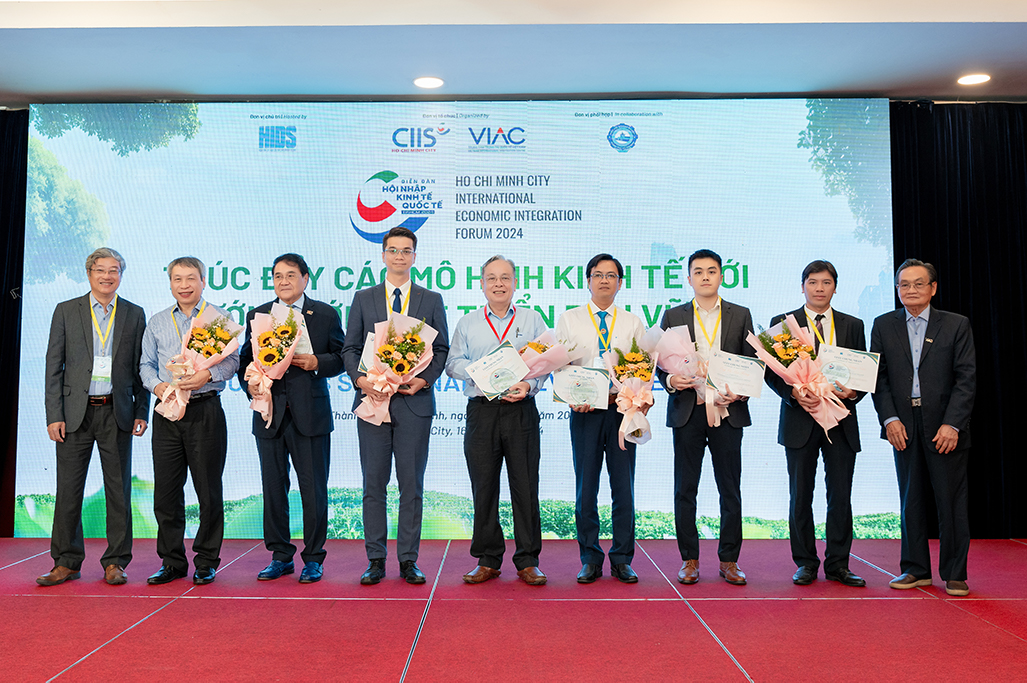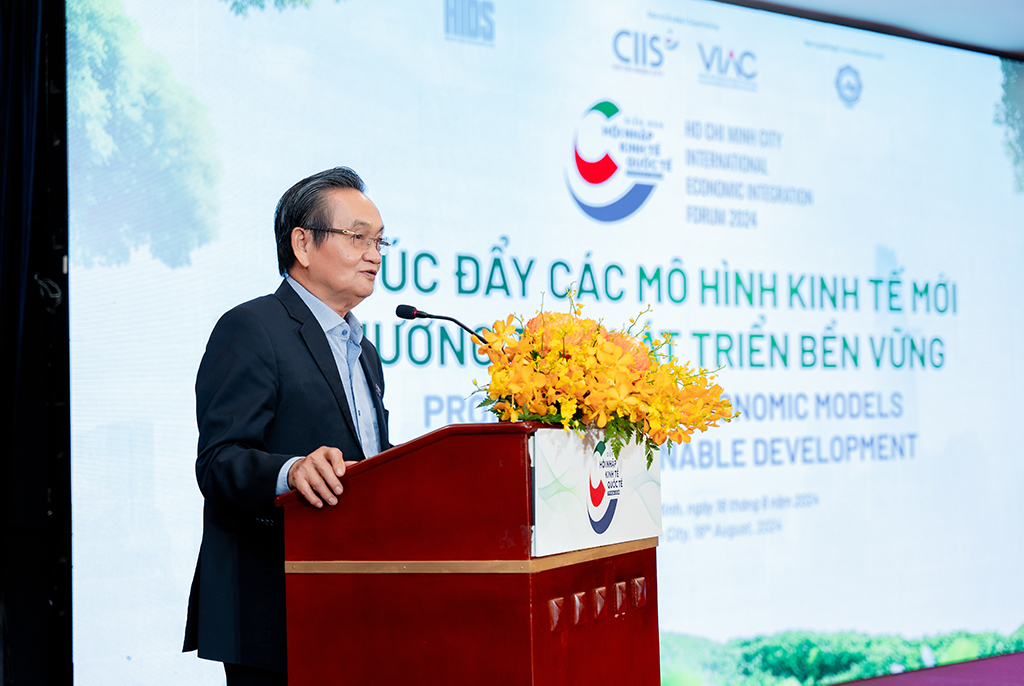Experts participate in the International Economic Integration Forum 2024
Digital and Green transformation (Dual transformation) is an urgent requirement in today’s context as the economy and society face environmental and sustainable development challenges. Digital transformation optimizes operational processes, reduces costs, and enhances competitiveness through automation, data analysis, and efficient information management. Green transformation focuses on minimizing negative environmental impacts by using renewable energy sources, adopting clean technologies, and developing eco-friendly products that help preserve natural resources and reduce pollution. Combining digital and green transformations promotes the development of new economic models that balance economic growth, environmental protection, and quality of life, contributing to Vietnam’s goal of achieving net-zero emissions by 2050.
As the economic engine of the country, the city’s government is committed to improving the investment and business environment, enhancing the competitiveness of businesses, and meeting the demands of global integration. The city prioritizes significant investment in supporting enterprises transitioning to digital and green economic models aimed at sustainable development.
The 2024 Ho Chi Minh City International Economic Integration Forum (IEIF), organized by the Ho Chi Minh City Institute for Development Studies, the Ho Chi Minh City Center for International Integration Support (HIDS|CIIS), in collaboration with the Vietnam International Arbitration Center (VIAC) and the Ho Chi Minh City Business Association (HUBA), was held on August 16, 2024, in Ho Chi Minh City. Themed "Promoting new economic models towards sustainable development", the forum provides a space for interaction and exchange between more than 300 participants, including representatives from government agencies, experts, and businesses, on new development trends. This event is part of the Ho Chi Minh City Economic Forum 2024 (HEF 2024).
Dr. Tran Du Lich - Vice Chairman of the Vietnam International Arbitration Center (VIAC)
In his welcoming speech at the Forum, Dr. Tran Du Lich, Vice Chairman of the Vietnam International Arbitration Center (VIAC), highlighted that adopting circular economy-oriented models is an urgent requirement today for every country and business. He noted that the simultaneous development of a green economy and a digital economy serves as a key pillar in the pursuit of sustainable development goals. Dr. Lich explained that with their mutually reinforcing impacts, digital technologies facilitate the transition toward a low-carbon, environmentally friendly economy. To empower businesses to make this transition confidently, he emphasized the vital role of government policies and a solid legal framework. He expressed his hope that the IEIF this year and in future editions will serve as a valuable platform for gathering expert and business contributions, thereby helping the city formulate appropriate policies that enable the business community to establish effective transition plans. Dr. Lich also shared that in line with digital transformation efforts, VIAC launched its VIAC eCase platform for electronic submissions and online dispute resolution in June 2024. This platform marks a major milestone for VIAC, showcasing the adaptation and flexibility in Vietnam’s dispute resolution practices. He expressed optimism that the adoption of technological advancements across various fields and industries will serve as a catalyst for comprehensive digital and green transformations.
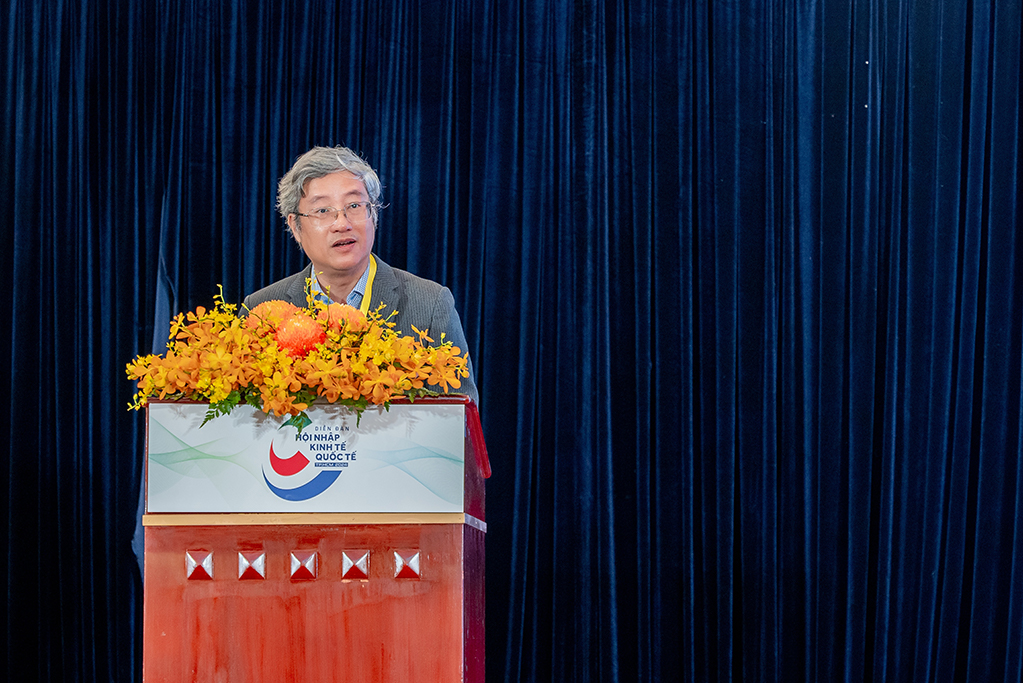
Mr. Pham Binh An - Deputy Director of the Ho Chi Minh City Institute for Development Studies
In the opening of the Forum, Pham Binh An, Deputy Director of the Ho Chi Minh City Institute for Development Studies, shared that Ho Chi Minh City is one of the top ten cities globally severely impacted by climate change. Despite the city's leading Gross Regional Domestic Product (GRDP) scale in Vietnam, its economic growth rate has shown signs of slowing, and the average income of its residents remains low. This situation necessitates that the city seek new solutions, drivers, and areas for economic development. In recent years, Ho Chi Minh City has introduced various programs and initiatives to implement and advance new models, such as the Project on "Developing the Digital economy, Sharing economy, and Circular economy in Ho Chi Minh City for the 2020-2025 period, with a vision to 2030," as well as the Nighttime Economy, all of which focus on "green" and "digital" transformations across government, businesses, and citizens. According to Mr. Binh An, the city is building a system of solutions and policies aimed at green transformation and sustainable development, with a focus on supporting and promoting energy transformation, sustainable technology, and consumption. In these efforts, businesses play a central role and lead the way in making the transition. Resolution No. 98/2023/QH15, which pilots certain special mechanisms and policies for the development of Ho Chi Minh City, has opened up new opportunities and momentum for the city's green and digital transformation journey. To explore and develop new economic models, today's Forum should focus on discussing solutions to promote the development of green and digital economic models for the city.
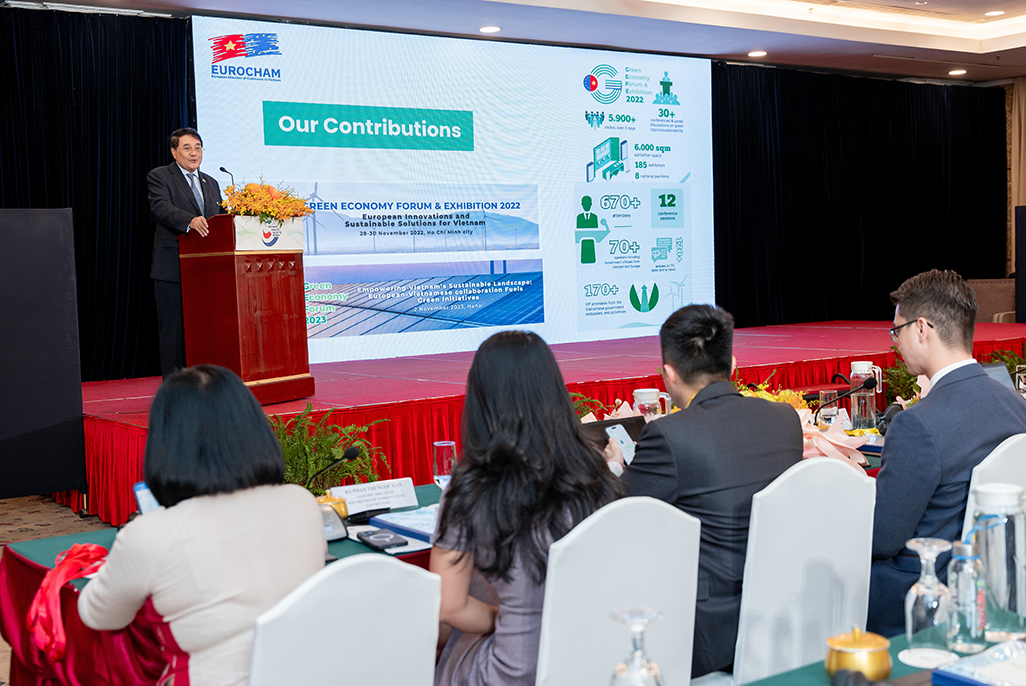
Mr. Jean-Jacques Bouflet - Vice President of the European Chamber of Commerce in Vietnam (EuroCham)
At the start of the Forum, Jean-Jacques Bouflet, Vice President of the European Chamber of Commerce in Vietnam (EuroCham), shared EuroCham's perspective on green transformation models and current international practices. He noted that governments worldwide are increasingly focused on enacting regulations related to sustainable development and economic growth aligned with environmental and social standards. The European Union’s Green Deal strategies are a prime example of this trend. In countries like Germany and South Korea, new transformation models have already been implemented. In Germany, a collaborative model is employed where government, legislators, and businesses from various sectors work together to develop green transformation ideas that are deep, robust, and transparent. Mr. Bouflet recommended that Vietnam adopt a comprehensive and thorough transformation roadmap, focusing on three main pillars: (i) a strong legal framework, (ii) experience-based implementation through pilot projects, and (iii) expanding the capacity to mobilize green financing.
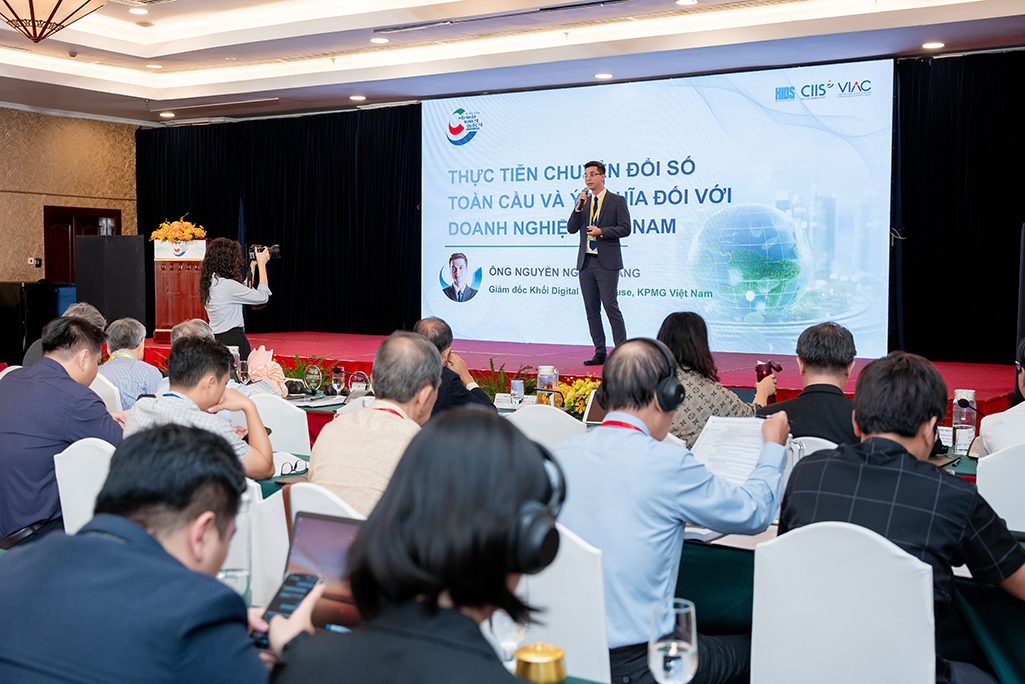
Mr. Nguyen Ngoc Hoang – Head of Digital Lighthouse at KPMG Vietnam
Discussing digital technology, Nguyen Ngoc Hoang, Head of Digital Lighthouse at KPMG Vietnam, highlighted that digital transformation is a prevailing global trend, with over 88% of businesses currently interested in and implementing digital transformation initiatives (according to KPMG International's report transforming the enterprise of the future: The new champions in a digital era, published in March 2024). Mr. Hoang identified key factors that determine the success of digital transformation, including the importance of people (with strong leadership support and a positive employee attitude) and clearly defined business objectives. KPMG recommends that to successfully implement digital foundations, companies need to establish a resilient culture, robust infrastructure, and data-focused approach. They should also invest in building digital skills and capabilities among employees. Mr. Hoang emphasized that digital transformation is a challenging and complex process. To minimize risks and costs, organizations may consider intermediate steps: transitioning the organization to a digital state by leveraging existing technologies and digital capabilities (digital transition), before advancing to fully digital business models and new value creation (digital transformation).
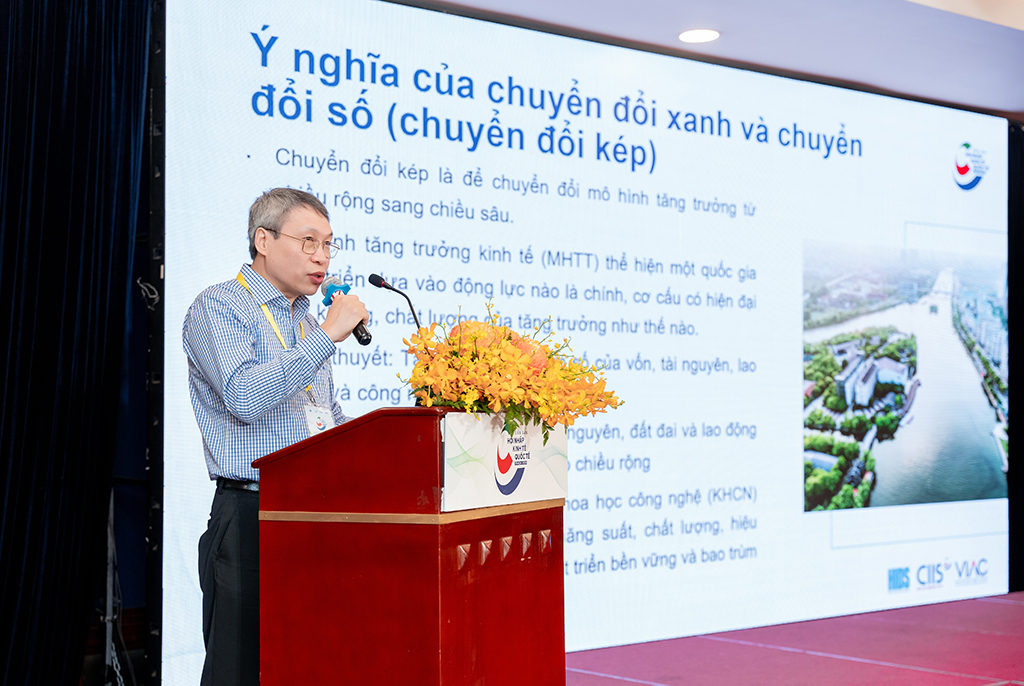
Assoc. Prof. Dr. Bui Quang Tuan – Former Director of the Vietnam Institute of Economics
In his remarks on dual transformation models, Assoc. Prof. Dr. Bui Quang Tuan, former Director of the Vietnam Institute of Economics, explained that dual transformation contributes to shifting the growth model from extensive to intensive development. Generally, an economic growth model reflects a nation's main growth drivers, as well as the structure and quality of its growth. Theoretically, a model relying on resources, land, and cheap labor is an extensive growth model; in contrast, a model driven by science and technology, innovation, productivity, digital transformation, and sustainable, inclusive development is considered intensive growth. However, the current growth model is not yet green and lacks significant contributions to sustainable development, particularly in areas like renewable energy, environmental pollution (especially plastic waste), and greenhouse gas emissions. The green economy remains in a potential stage, and while the regulatory environment has improved, it still faces obstacles, lacking breakthroughs, pilot initiatives, especially for science, technology, innovation, and new economic models. Dr. Tuan outlined some green transformation policies aimed at fostering green growth, as well as policies that support digital transformation for businesses. He noted that science and technology, high-quality human resources linked to innovation (leading to higher labor productivity), a vision for a green and digital economy, investment resources, international cooperation, and an enabling regulatory framework will be essential drivers for dual transformation toward sustainable development.
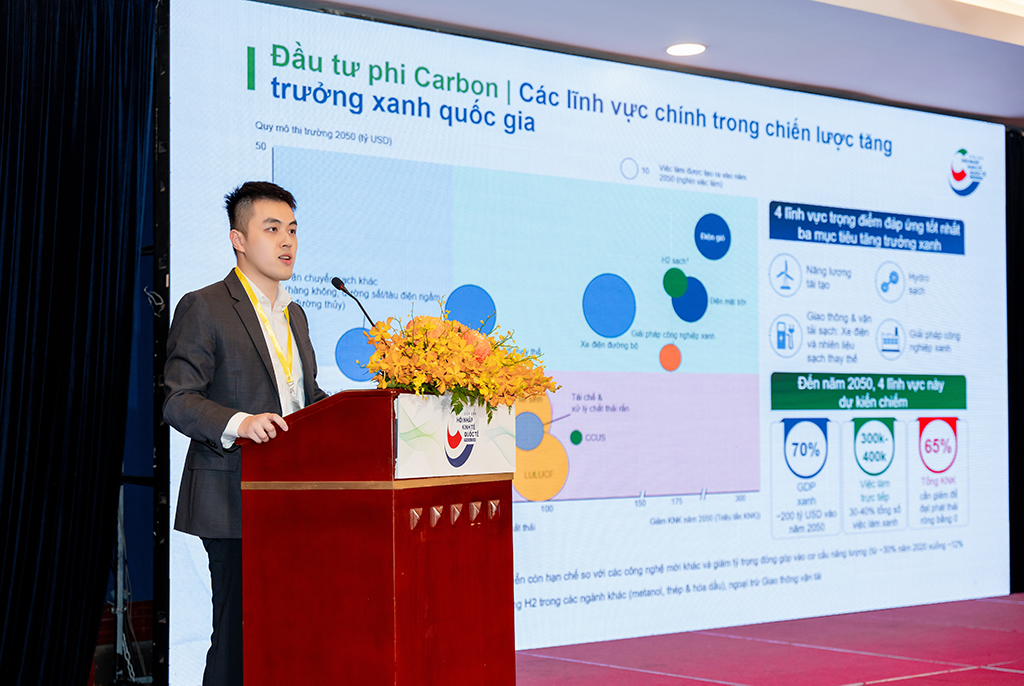
Mr. Vu Mac Hung - Socio-economic consultant at Boston Consulting Group (BCG)
Vu Mac Hung, socio-economic consultant at Boston Consulting Group (BCG), noted that while Ho Chi Minh City has made significant strides in greening its economy, it still faces numerous challenges in implementing new economic models. He emphasized the importance of a clear and comprehensive green growth vision and strategy, outlining the broad impact scale on employment, economic growth, and investment. Furthermore, Resolution 98/2023/QH15 includes provisions allowing Ho Chi Minh City to issue green bonds and pilot carbon credit trading - considered one of the key priorities for advancing the city’s and Vietnam’s green ambitions. In addition to a green economy, digital transformation is also crucial. Mr. Hung proposed five core solution groups for successfully developing a digital economy, focusing on governance and organization; policies, regulations, and standards; leadership, talent, skills, and culture; research, development, and innovation; and incentives and investment.
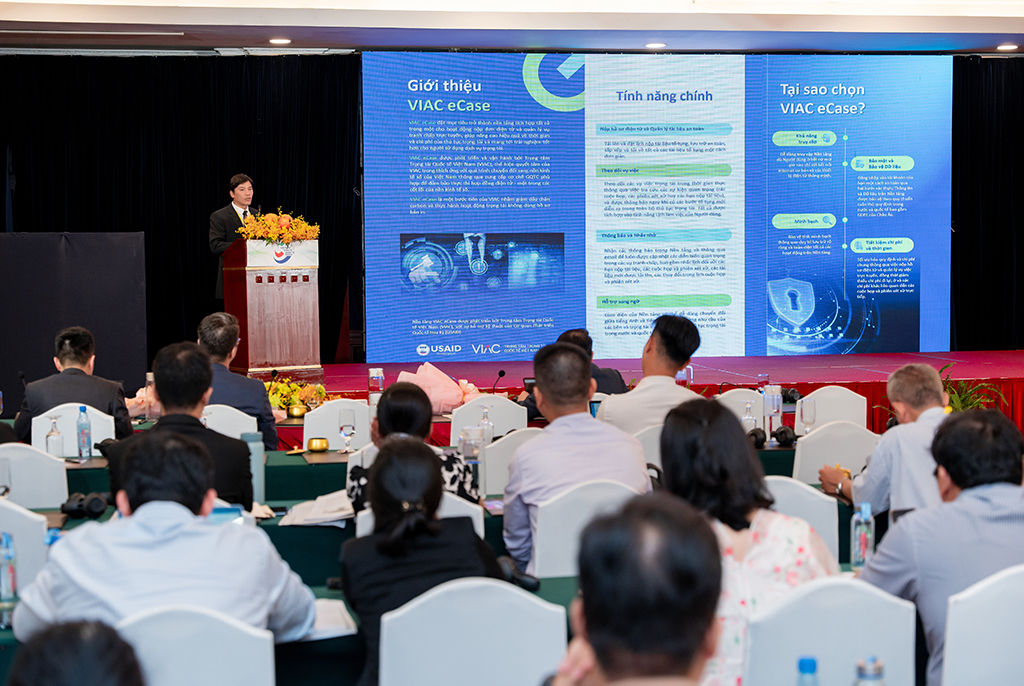
Mr. Nguyen Trung Nam - Senior Partner at Dentons Luat Viet and Arbitrator at VIAC
Continuing the Forum, Mr. Nguyen Trung Nam, Senior Partner at Dentons Luat Viet and Arbitrator at VIAC, provided updates on the legal framework and dispute issues within the green and digital transformation context. Mr. Nam noted that the current widespread focus on sustainable development is leading to significant regulatory changes. In the expanding digital economy, companies face increasing risks related to technology transfer, intellectual property, and data security. Meanwhile, green transformation emphasizes compliance with environmental standards, sustainability practices, and labor requirements. As a result, businesses that pursue both green and digital transformations simultaneously are likely to encounter dual risks, potentially escalating into complex disputes. Mr. Nam assessed that while Vietnam is proactively improving its legal regulations to support a green economy, many policies remain at the proposal stage and are not yet formalized into concrete regulations. This presents challenges for businesses, especially in international economic integration and in aligning "green" operational processes with foreign partners. He highlighted that disputes involving environmental factors often span criminal, civil, labor, and administrative domains, yet commercial arbitration remains a preferred method for resolving business disputes due to its advantages. The digitization process is also bringing significant changes across various fields, including judicial activities in courts and commercial arbitration. Mr. Nam cited Directive No. 02/CT-CA on promoting digital transformation and building electronic courts, as well as VIAC’s eCase electronic filing and online dispute management platform, which enhances arbitration procedures. These advancements aim to improve efficiency and foster professionalism, transparency, and accountability in dispute resolution. Mr. Nam emphasized that with these transformations, both businesses and dispute resolution bodies must adapt to meet the evolving requirements, especially given the current legal framework's limitations.
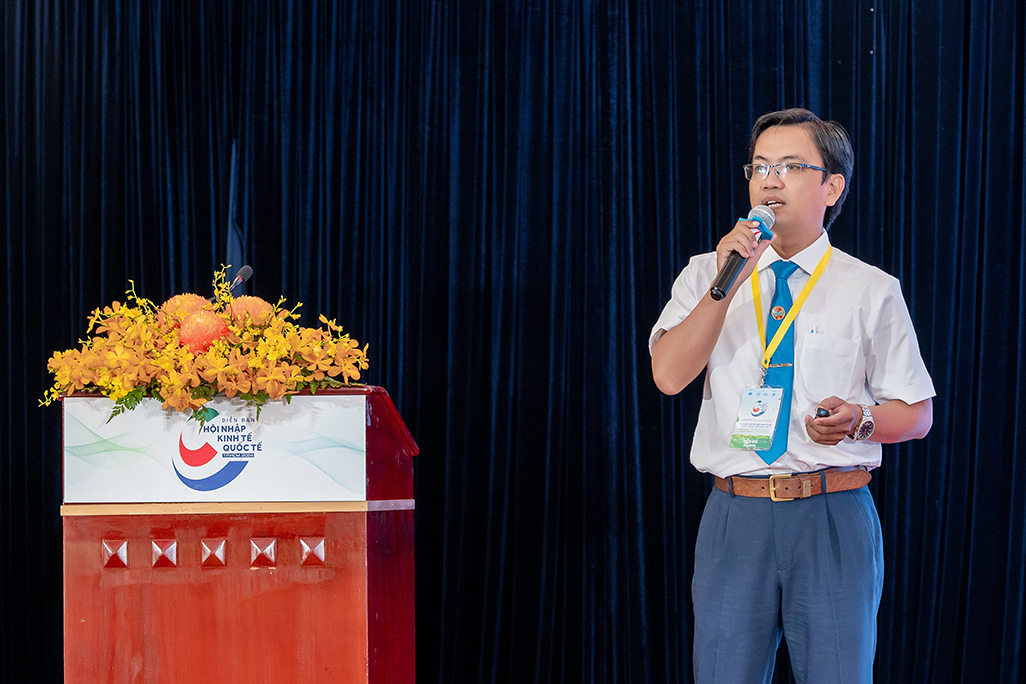
Mr. Lam Ngoc Tuan - Director of Tuan Ngoc Agricultural Cooperative
To realize the proposed economic models, Mr. Lam Ngoc Tuan, Director of Tuan Ngoc Agricultural Cooperative, shared the current status of the cooperative’s operations in the process of transitioning to energy, water, and fertilizer savings, as well as the cooperative's direction toward a green transformation in agriculture. In addition to saving electricity, transitioning to drought-resistant crops to significantly reduce irrigation water consumption, investing in green technologies, and lowering production costs, the cooperative faces challenges due to high initial investment costs and the need for constant maintenance of advanced technology equipment. Additionally, there is a need to equip farmers and cooperative staff with knowledge and skills to manage technology effectively. However, Mr. Tuan pointed out that preferential loan policies and financial support packages from the government and non-governmental organizations are still limited, not meeting the full needs of cooperatives. Furthermore, the domestic market for green agricultural products is underdeveloped, and the demand remains unstable, making it difficult for the cooperative to sustain and expand production.
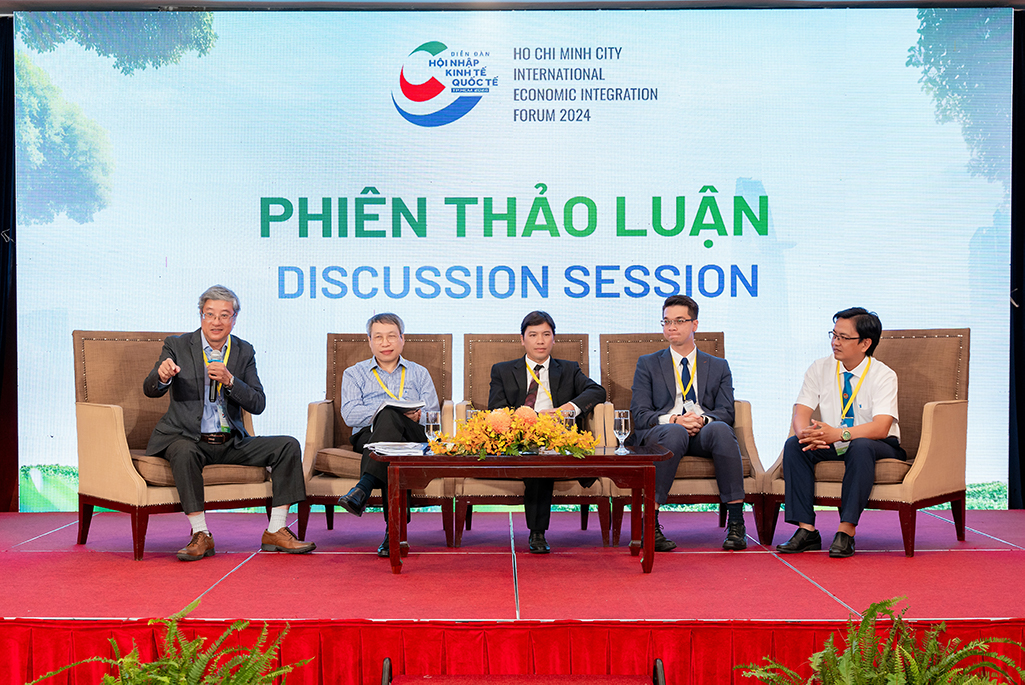
Speakers participate in the discussion session
After the presentations from the speakers, a discussion session on the topic "Solutions to promote new economic models towards sustainable development" was held, moderated by Mr. Pham Binh An, Deputy Director of the Ho Chi Minh City Institute for Development Studies. The session saw active participation from experts, representatives from various departments, and business representatives. The discussion was lively, focusing on strategies and solutions to accelerate the adoption of new economic models aimed at achieving sustainable development goals.
| EVENT'S MATERIALS: Please refer to
HERE
-------------------------
The Ho Chi Minh City International Economic Integration Forum 2024 is an annual event of the city since 2018. The program also features exhibitions of outstanding products and services, trade promotion activities, and business networking on the sidelines of the Forum.
